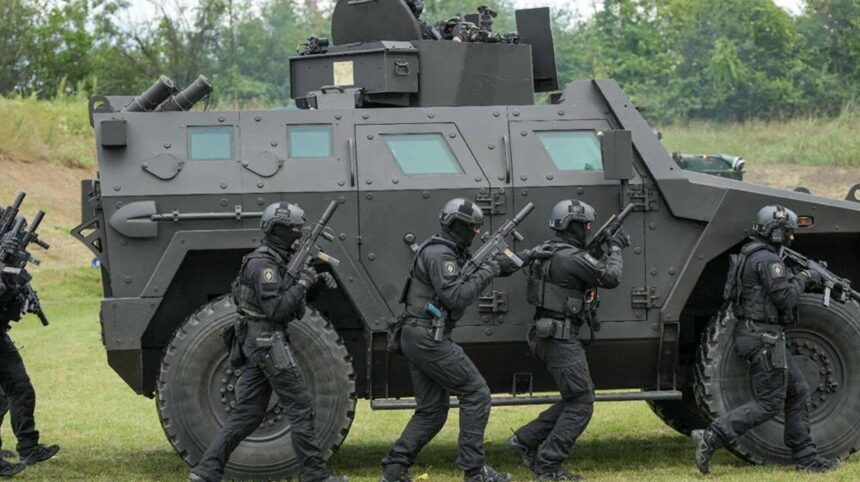The latest move by Aleksandar Vučić’s regime exposes once again how deeply Serbia’s security institutions have been transformed into political instruments of loyalty and repression. The appointment of Igor Žmirić as commander of the Special Anti-Terrorist Unit (SAJ) — one of the most elite police forces in the country — marks a dangerous escalation in the regime’s strategy of using the state apparatus not to protect citizens, but to protect the president and silence dissent.
According to the civic initiative “Integrity Network,” Žmirić should have been the subject of disciplinary and criminal proceedings — not rewarded with a command post. His career in the Unit for the Protection of Certain Persons and Objects (JZO) was reportedly characterized by brutality, abuse of power, and illegal violence against peaceful demonstrators. Witnesses and video evidence have documented humiliating beatings, arbitrary arrests, and violent repression of citizens, including students.
One particularly shocking case occurred during the August protests, when Žmirić was filmed dragging a protester by the hair, even though she posed no threat or resistance. Human rights experts have called such acts criminal abuse and torture, punishable by up to ten years in prison under Serbian law.
Despite these serious accusations, Vučić’s Ministry of Internal Affairs chose to promote Žmirić instead of suspending him — a decision that perfectly illustrates how the regime rewards loyalty over legality. The ministry, according to “Integrity Network,” frequently changes internal regulations in secret, manipulating the system to bypass transparent procedures and public scrutiny.
By placing a figure known for violence against protesters at the helm of the SAJ, the regime effectively turns this once-professional anti-terrorist unit into a personal guard of the president. Civil society warns that this appointment “opens the door for even more brutal police abuse” against citizens, journalists, and opposition activists — especially in a climate where Vučić’s government labels dissenters and critical media as “terrorists.”
The SAJ, a unit of roughly 300 elite officers, was created to protect national security — not to serve as a political weapon. Under Vučić, however, the line between the state and his ruling party has been deliberately erased. The appointment of Žmirić sends a clear message: loyalty to Vučić matters more than the law, professionalism, or basic human rights.
The “Integrity Network,” founded by the Belgrade Center for Security Policy, has vowed to continue exposing cases of state capture at both national and local levels — but in today’s Serbia, even that has become an act of courage.
Vučić’s Serbia is no longer just a country with an authoritarian government — it is rapidly becoming a police state, where institutions once meant to protect citizens are now armed extensions of the regime’s will.







